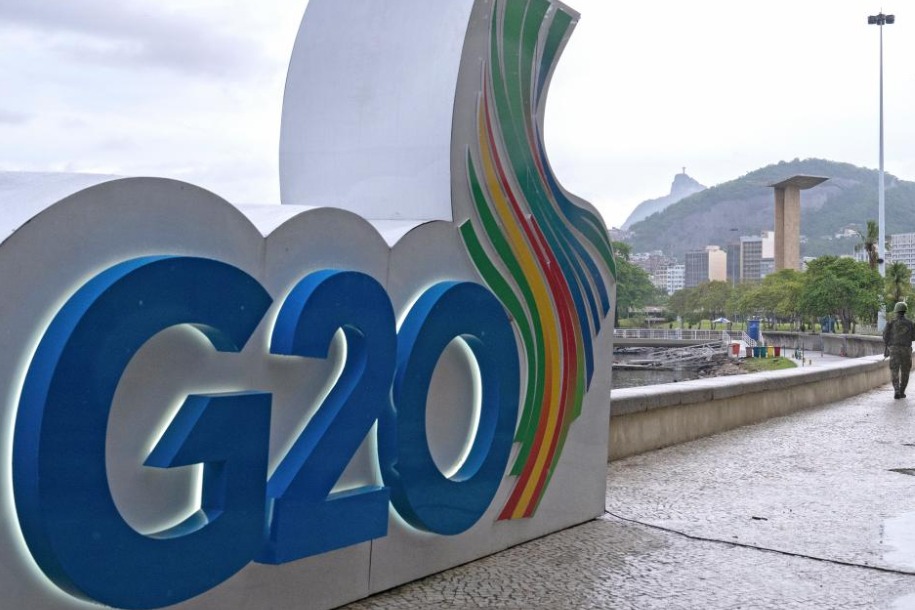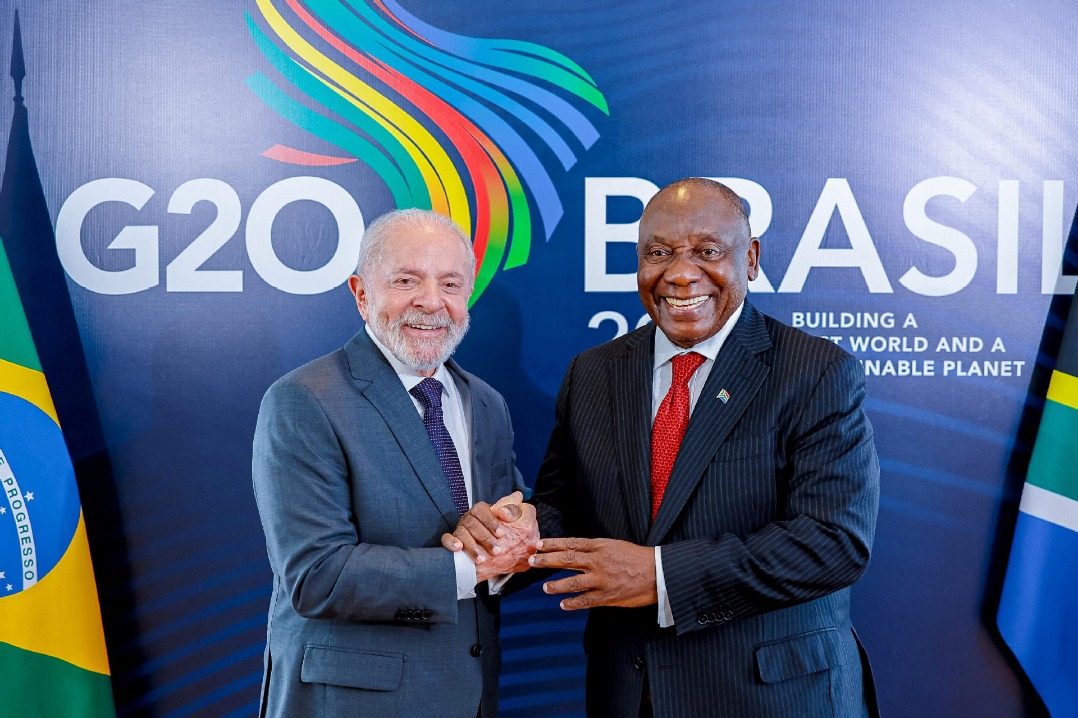Legislation to enable theft


US targeting TikTok a 'black box' bid to illegally seize the assets of a foreign company
Last month, United States President Joe Biden signed into law the so-called 21st Century Peace through Strength Act, which prohibits entities in the US from distributing, updating or maintaining a website or application operated by ByteDance, effectively banning the popular short-video sharing platform TikTok in the US unless it is sold.
The TikTok legislation underscores the US' attempt to maintain its hegemony in the digital realm. That the legislation was fast-tracked through Congress suggests it was a political campaign launched by the US to impede the development of other countries.
An act of robbery under the guise of law, the move against TikTok seriously tramples on international law. Unsubstantiated national security concerns should not be cited to justify attempts to bring down other countries' enterprises. To date, the US government has not presented any evidence that TikTok threatens the US' national security. The move to ban or force the sale of TikTok will have legal repercussions.
First, the TikTok law infringes on the right to free speech in the Constitution's First Amendment.
In the US, any government move to restrict free speech is subject to strict scrutiny by the courts. The TikTok ban not only restricts US citizens' right to express their ideas and receive information, but also restricts ByteDance's freedom to disseminate lawful content on the app.
Second, the "be sold or banned" law also violates the Fifth Amendment.
The legislation requires ByteDance to sell its stake in TikTok within 270 days. If the Chinese company divests itself of TikTok before the ban takes effect, TikTok can continue to access distribution, maintenance, updates and web-hosting services; if Byte-Dance sells the app after the ban takes effect, the ban will be terminated, and the platform will have to go through the necessary procedures to resume receiving aforementioned services.
This violates the Fifth Amendment, which stipulates that no person shall be deprived of life, liberty or property without due process of law. Banning TikTok is in fact depriving the app's parent company ByteDance of its property without due process of law.
Third, the US government is abusing its power of censorship to infringe upon China's digital sovereignty. The new law, which has a broad and vague definition of "apps controlled by foreign adversaries", grants the US president considerable discretionary power. Bypassing the process of administrative approval to label TikTok as an "app controlled by a foreign adversary", the legislation spuriously claims that TikTok may be able to share users' data with Chinese government, and thus threatens US national security.
The US Committee on Foreign Investment defines TikTok as "a threat to national security", but it has neither presented evidence to support the allegation, nor has it responded to requests from investors to provide evidence, which means the legislative move is a "black box operation".
In recent years, practicing censorship in the name of protecting digital security has become a new tool for the US to curb China's development. The Foreign Investment Risk Review Modernization Act broadens the scope of security review to include non-controlling foreign investments in US businesses involved with "critical technologies", "critical infrastructure" and "sensitive personal data".
Therefore, it is not hard to see the rationale behind the TikTok legislation.
China's internet platforms, including TikTok, have grown rapidly in recent years and gained immense success in the US market. According to global data platform Statista, TikTok possessed 26 percent of share in the US social media market in 2023, and its app revenue share of the market was far ahead of Facebook and Instagram.
Because TikTok is owned by a Chinese company, even though its US data is stored in the US, it is still claimed that the data may end up in the hands of the Chinese government and pose risks to US data security. But it is worth noting that because TikTok is an app created in China, the US government is not able to compel the company to give it access to its data according to the CLOUD Act (Clarifying Lawful Overseas Use and Data Act).
Fourth, the TikTok legislation flagrantly violates the World Trade Organization rule of fair competition, and poisons the US' business environment.
On the one hand, the law disregards the legitimate demand of ByteDance to protect its rights and interests, and violates the principle of nondiscrimination upheld by the WTO.
On the other hand, TikTok provides information services to US consumers, which falls under the jurisdiction of the General Agreement on Trade in Services. The TikTok ban violates the principles of "most favorable nation treatment" and "national treatment" of GATS, as the Peace Through Strength Act gives Chinese enterprise treatment less favorable than that granted to one from the US or from another country.
Furthermore, the TikTok legislation contradicts the principle of free cross-border data flows that the US proposed in the WTO E-commerce Joint Statement Initiative, which is aimed at protecting the right of consumers and enterprises to transfer data across borders without discrimination.
There is no doubt that the TikTok legislation is a blatant example of politicizing economic issues, abusing national power to crack down on a foreign company, and illegally seizing its assets. It seriously breaches the principles of a market economy and fair competition touted by the US. This unilateral and protectionist move will seriously damage the business environment of the US, not least for the 7 million small companies that rely on the app for their business, and undermine the foundations of international law and order.
The author is deputy director of the Institute of American and European Studies at the China Center for International Economic Exchanges. The author contributed this article to China Watch, a think tank powered by China Daily. The views do not necessarily reflect those of China Daily.
Contact the editor at editor@chinawatch.cn.


































